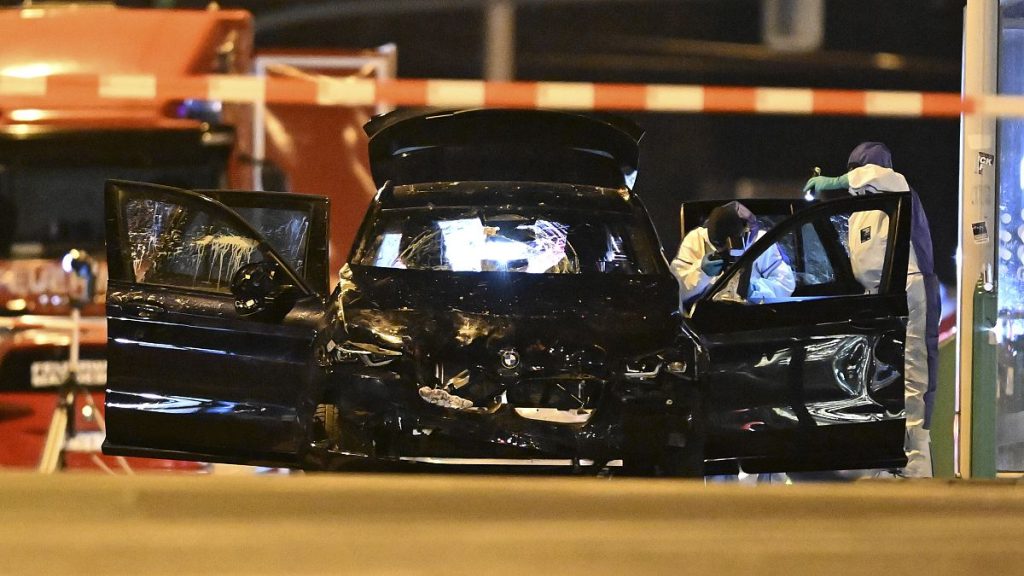The peaceful ambiance of a bustling Christmas market in Magdeburg, Germany, was shattered on a Friday evening when a car plowed into the crowd, leaving a trail of devastation and heartbreak. The deliberate attack claimed the lives of at least two individuals, an adult and a toddler, while inflicting serious injuries on 15 others, casting a shadow of uncertainty over the final death toll. The festive atmosphere, brimming with holiday shoppers, was instantly transformed into a scene of chaos and terror as the vehicle careened into the market, leaving behind a wake of injured and traumatized individuals.
Swift action by law enforcement led to the apprehension of the driver at the scene. Identified as a 50-year-old Saudi doctor who had immigrated to Germany in 2006 and practiced medicine in a nearby town, the suspect’s alleged lone-wolf attack sent shockwaves through the community. Authorities, while emphasizing the absence of any further immediate threat, launched a thorough investigation to determine the motive behind this heinous act. The suspect’s background and potential connections were meticulously scrutinized as investigators sought to piece together the events leading up to the tragedy.
The incident plunged the city of Magdeburg, the capital of Saxony-Anhalt, into mourning. Mayor Simone Borris, visibly shaken by the tragedy, expressed her profound grief and announced plans for a memorial service at the city’s cathedral. The attack not only cast a pall over Magdeburg’s Christmas celebrations but also prompted other German towns to cancel their own markets as a precautionary measure and in solidarity with the victims. The festive spirit, synonymous with the Christmas season, was replaced by a sense of collective mourning and apprehension.
This horrific event resonated far beyond the borders of Magdeburg, drawing expressions of condolence and support from international leaders. German Chancellor Olaf Scholz, European Commission President Ursula von der Leyen, and NATO Secretary General Jens Stoltenberg all conveyed their sympathies and condemned the brutal attack. The incident served as a stark reminder of the vulnerability of public spaces and the enduring threat of violence, even during times of celebration and joy.
The Magdeburg attack also evoked chilling memories of a similar tragedy that unfolded eight years earlier in Berlin. In 2016, an Islamic extremist drove a truck into a crowded Christmas market, killing 13 people and injuring many others. This earlier incident underscored the symbolic significance of Christmas markets as targets of extremist violence, raising concerns about the security of these cherished cultural traditions. The recurring nature of such attacks prompted discussions about the need for enhanced security measures to protect these public gatherings while preserving their open and accessible nature.
Christmas markets hold a special place in German culture, representing a centuries-old tradition that has been embraced across much of the Western world. These festive gatherings serve as a focal point for communities during the holiday season, offering a blend of seasonal delights, handcrafted gifts, and warm camaraderie. The attack in Magdeburg not only disrupted a cherished local tradition but also struck at the heart of a broader cultural practice, raising questions about the balance between security and the preservation of these open, communal spaces. The incident underscored the challenge of safeguarding public spaces against the threat of violence without compromising the spirit of openness and community that these gatherings represent.














